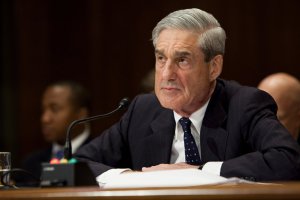 Cambridge Analytica is a company created by Robert Mercer, a billionaire patron of right-wing outlets like Breitbart News. Mercer’s daughter, Rebekah, is a board member. Donald Trump’s campaign manager, Steve Bannon, is a former vice president of Cambridge Analytica, and the former editor of Breitbart News. Trump confidant Gen. Michael Flynn also had “a brief advisory role” with Cambridge Analytica. Cambridge Analytica, the shady data firm that might be a key Trump-Russia link, explained:
Cambridge Analytica is a company created by Robert Mercer, a billionaire patron of right-wing outlets like Breitbart News. Mercer’s daughter, Rebekah, is a board member. Donald Trump’s campaign manager, Steve Bannon, is a former vice president of Cambridge Analytica, and the former editor of Breitbart News. Trump confidant Gen. Michael Flynn also had “a brief advisory role” with Cambridge Analytica. Cambridge Analytica, the shady data firm that might be a key Trump-Russia link, explained:
Cambridge Analytica specializes in what’s called “psychographic” profiling, meaning they use data collected online to create personality profiles for voters. They then take that information and target individuals with specifically tailored content.
* * *
In June 2016, the Trump campaign hired Cambridge Analytica to take over its data operations.
We know from the reporting of Nicholas Confessore and Danny Hakim at the New York Times that Jared Kushner, who was charged with overseeing Trump’s digital operations, is the reason Cambridge Analytica joined the Trump campaign.
Kushner hired a man named Brad Parscale, a Texas-based digital expert who had worked previously for team Trump. According to Confessore and Hakim, Cambridge Analytica convinced Parscale (who has since agreed to be interviewed by the House Intelligence Committee) to “try out the firm.” The decision was reinforced by Trump’s campaign manager, Steve Bannon, a former vice president of Cambridge Analytica.
It’s not clear to what extent Cambridge Analytica helped (Parscale denied that Cambridge was of any use in a recent 60 Minutes interview), but we do know that Trump’s digital operation was shockingly effective. Samuel Woolley, who heads the Computational Propaganda project at Oxford’s Internet Institute, found that a disproportionate amount of pro-Trump messaging was spread via automated bots and anti-Hillary propaganda. Trump’s bots, they reported at the time of the election, outnumbered Clinton’s five to one.
Pro-Trump programmers “carefully adjusted the timing of content production during the debates, strategically colonized pro-Clinton hashtags, and then disabled activities after Election Day.”




